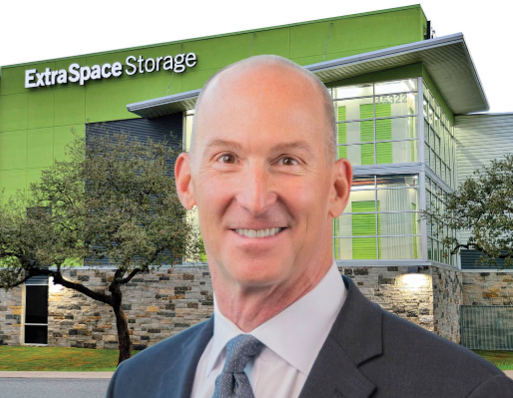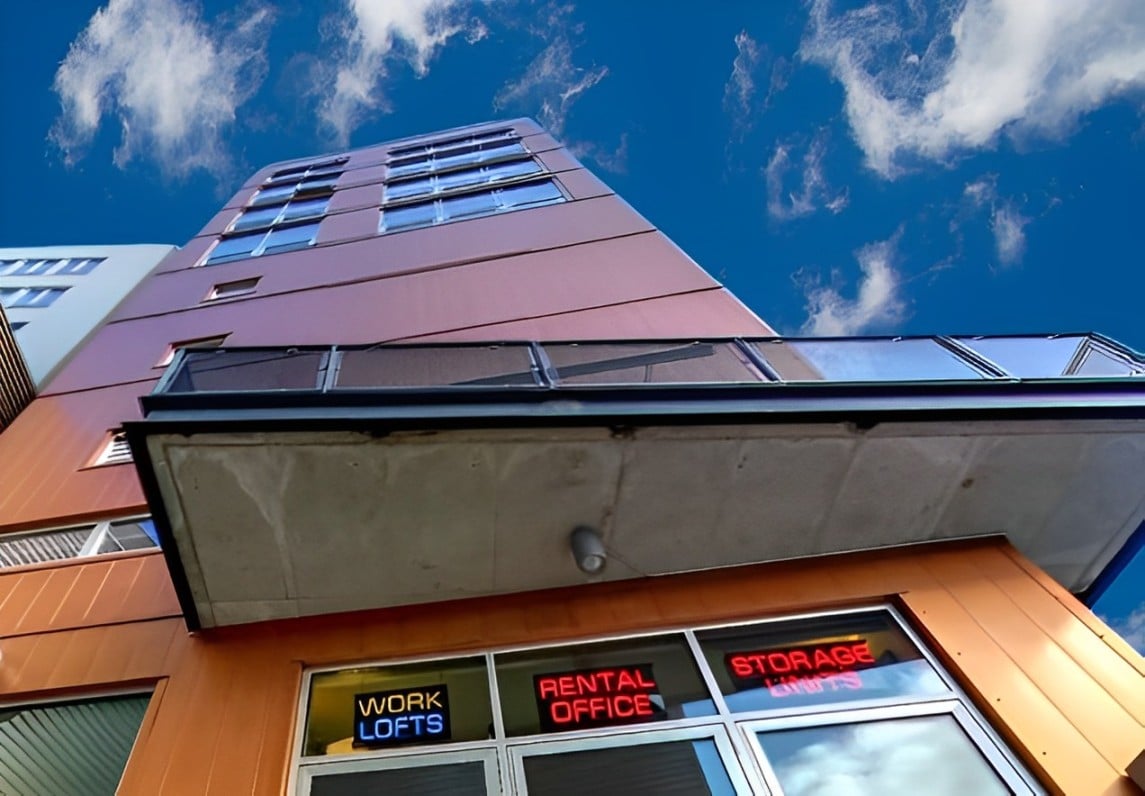Streamlining Operations
Five Strategies To Efficiently Increase NOI
Despite the fact that self-storage facilities across the country have been able to make substantial increases to rental rates due to high demand and somewhat stagnant supply, storage operators should continue to find alternative ways to boost the net operating income (NOI) at their properties. And increasing NOI becomes more important during the slower rental season when occupancies may incur a slight dip from move-outs.
Oftentimes, a facility’s expenses are the first items to come under fire when attempting to augment NOI. An in-depth review of each line item in an expense report may reveal unnecessary expenditures as well as areas for potential cost savings. Typically, there are items that can be cut or vendor rates to negotiate.
“Negotiate with vendors for the lowest price possible,” says John Eisenbarth, vice president of operations at West Coast Self Storage, who adds that operators need to be diligent and observant in regards to expenses. As an example, he states that West Coast reduced the dumpster size at all of their facilities to save money after realizing that the previous dumpster size was not being fully utilized.
In addition to cutting expenses and raising rates, streamlining operations can yield ample profits. Although there are an endless number of strategies for increasing NOI through efficiencies, this article focuses on five techniques utilized by some of the industry’s key players.
Get With The Times
First and foremost, with the start of a new year, there is no better time like the present to bring your self-storage facility up to speed. “New technology can provide cost savings while delivering an improved customer experience,” says Guy Middlebrooks, CubeSmart’s vice president of third-party management. “Look for ways to implement new technology in both the back end and the customer-facing experience at your self-storage facility.”
Indeed, you are doing yourself a disservice if your facility still relies on paper ledgers and hand printed receipts to conduct business. “Today’s self-storage customers expect a fast, easy, and paperless process, from start to finish,” Middlebrooks says. “Streamlining your website, making it easier for a customer to find what they need and to process their reservation or rental, is a great place to start.”
What’s more, if you are still digging in your heels, it’s time to fully embrace the Internet and its copious advantages—especially the “free” ones such as social media and customer reviews. “Operators need to have a good Internet marketing campaign,” says Eisenbarth, who adds that West Coast Self Storage has successfully moved its Internet marketing in-house to reduce expenses. The company also streamlines its operations by utilizing the same self-storage software at most of its facilities.
Speaking of in-house operations, Gary Sugarman, chief strategy officer for The William Warren Group, Inc., advises storage operators to establish in-house call centers to effectively handle incoming customer calls. “You need to have a call center to be instantly responsive to customers,” he says. “A third-party call center is not a good solution. You can’t farm out the call center to a company that just handles calls and doesn’t know the business or the full scope of your relationships with customers.”
It should go without saying that simply having the latest and greatest in storage technology does no good if you aren’t using it to its full potential. For starters, take advantage of tech support and become knowledgeable about all of your product’s offerings. Mark Poole, regional manager for Liberty Investment Properties, which offers third-party management and operates facilities under the name My Neighborhood Storage Center, suggests to “know your reports.”
According to Poole, many reports remain unused. “Focus on the things that matter, and simplify the complex,” he adds. Eisenbarth concurs with Poole, stating that West Coast Self Storage has consolidated reporting to focus on its key performance indicators. For example, utilizing software automation for reports reduces the amount of time managers spend hunkered down behind computers, enabling them to tend to customer-focused tasks and facility upkeep.
Automation has become a key aspect of revenue management as well. And sophisticated revenue management technology is being utilized by many of the industry’s top operators. “Expense control is important, but focusing on revenue growth will have a bigger and immediate impact on your NOI,” says Middlebrooks. “Sophisticated revenue management systems can provide improved revenue growth.”
Although revenue management systems are a definite boon, Eisenbarth reminds operators not to wash their hands of the task. “Review board rates on a consistent, monthly basis,” he says. “You should consistently look at the rates for opportunities.” In addition, all of the facility’s financials should be reviewed monthly to keep on top of ways to increase income and trim expenses.
Economies Of Scale
While all of the previously mentioned technologies and advancements are surefire ways to streamline operations for increased NOI, they can be expensive to implement, especially for independent operators with limited budgets. Therefore, many industry veterans suggest that small and mid-size operators seek out discounted or group rates for products and services through economies of scale. “Operators can take advantage of expense savings through ‘scale’ by joining organizations like the SBOA, or by selecting large operators to provide day-to-day management of their facility,” Middlebrooks says.
As a matter of fact, economies of scale can provide cost savings for nearly every line item of your expense sheet, from insurance to pest control. For example, most vendor members of the national and state storage associations offer discounts to members. Furthermore, many of those associations have various membership benefits of their own. And, as Middlebrooks mentions, self-storage organizations, such as the Storage Business Owners Alliance (SBOA), extend beneficial cost savings opportunities to their members. According to the SBOA’s website, its members “gain economies of scale and improve their negotiating position” and take advantage of “pre-negotiated services and savings so that they can compete more successfully with larger competitors and enjoy improved profitability.”
And although all of these options for economies of scale come at a price, the annual membership fees are negligible compared to the available cost savings. “Partner with somebody,” says David Decker, Extra Space Storage’s director of operations. “It’s worth the cost reductions and increased NOI.”
On top of discounts, most of these economies of scale provide their members with valuable networking and learning opportunities, such as conferences, blogs, publications, webinars, and training, as well as business exposure and legal counsel. Certainly, the benefits are seemingly endless for self-storage operators and their employees.
Engage Personnel
With employees in mind, Sugarman emphasizes the value of engagement, stating that the best way to streamline operations is to engage personnel. “Treating them well is an effective formula. It’s our ‘secret sauce’,” he says. “We pay close attention to the workplace culture. We establish and cultivate ownership. Our managers are engaged, treating the locations as if they own them. They ensure the facilities are well maintained. Our people are motivated to perform and watch expenses.”
The William Warren Group, which operates its portfolio under the name StorQuest Self Storage, does this by creating an environment that keeps priorities in check. For instance, the company recognizes that family comes before work for the majority of its employees. Therefore, as an employer, flexibility is crucial. “We are a laidback company,” says Sugarman. “We want to ensure that our people are happy and having enjoyable experiences.”
In turn, the company’s employees perform better. “We have full engagement from our staff,” Sugarman says. “They improve and embrace processes. They care about the results. The net effect is that our top line is higher.”
However, these efforts would be in vain without the right people in place. Hence, it is vital to have a good grasp on recruitment efforts. Sugarman says that entails hiring sales-oriented personnel with can-do attitudes.
Moreover, Decker warns that even the most brilliant ideas for streamlining operations will fail if they are too confusing to the facility managers or if they create additional stress. “Be sure to get your managers on board,” he says. “You need to have champions on the frontlines who will buy into it.” Decker adds that any change you plan to implement should be an emotional sell for the managers. “Explain why it is beneficial to the managers,” he says.
In addition, Eisenbarth suggests creating a hands-on approach that enables district managers, assistant managers, and facility managers to make on-site decisions without requiring approval from higher-ups within the company. This form of engagement instills managers with confidence and establishes trust. Keep in mind: A work environment that is supportive of everyone’s unique capabilities is beneficial for the entire company.
Of course, there is always the option of hiring a third-party management company if you are unable to motivate your staff. Third-party management companies provide a wide array of beneficial services, such as education, training, and recognition/incentive programs, as well as economies of scale and assistance with the daily requirements of facility management. Third-party management companies can provide all-encompassing services or a la carte services; do some research to determine which would best suit your needs and your budget.
A Culture Of Innovation
One way to engage personnel is to foster a culture of innovation. According to Decker, there is always a better way to do something, and managers are usually enthusiastic about developing and implementing innovative ideas. “There are opportunities in every little aspect,” he says. “It’s a simple business, but there are always ways to make the company more efficient.”
That is why Extra Space encourages its employees to look for non-traditional methods for streamlining operations. “A bunch of little things add up,” Decker says. “We consistently have record performance because we are always looking for new ways to do things in every department. Keep an eye and ear open for innovations. Challenge the norm.”
Decker states that this can be achieved through a grassroots, bottom-up approach. He suggests having the facility managers ask their customers what they want, and then request input from the managers. “Breakdown the steps of the whole customer experience to streamline the process,” says Decker.
Poole couldn’t agree more. “Ask a lot of questions,” he says. “Push to do better. Ask why things are done that way and how you can do them better.” My Neighborhood Storage Center also promotes the sharing of information among employees through an internal company blog. “It’s a great resource for them,” says Poole. “It enables the team to share info, tips, and ideas.” The company blog is “live” and updated often to maintain effectiveness.
Maximize Space
Square footage is an item that every self-storage facility has at its disposal, yet some fail to maximize its potential. Decker suggest that operators find ways to “squeeze more out of the property” by providing more services that streamline the moving process for customers. Two of the most common forms of ancillary income are selling retail goods and offering truck rentals—both of which are pretty much industry standards nowadays, and not having these items available is a disservice to your customers and your bottom line.
As an example, units that are difficult to rent can be utilized for storing excess retail items or transformed into display areas. Some operators have even opted to provide appreciated community services by turning odd-sized units into donation locations for various items such as recyclable electronics, unwanted household goods and/or furniture, clothing, and toys. The collected items are then donated to local charities or auctioned off as a charity unit. Either way, it’s a win-win scenario for community members who are looking to dispose of items and the non-profit organizations.
Several other appropriate types of ancillary income with minimal implementation costs include packing/shipping centers, eBay selling services, business centers, propane stations, record storage, document shredding, and tenant insurance programs. While it’s wise to start by asking your customers what services they would find to be beneficial, ancillary income opportunities are truly only limited by your available space and creativity. However, just don’t forget to charge for the services you provide as well as late fees and administrative fees. “Every penny earned has a reward,” Poole says. “Maximizing every square foot is essential.”
If indoor space is limited, consider finding ways to make use of your parking lots or excess acreage. “Renting” space for billboards and/or cell phone towers can provide income without necessitating additional manpower. Additionally, unused parking spots can become profitable when rented out as basic spaces for RVs, boats, or other vehicles.
Final Thoughts
Regardless of how you decide to streamline operations at your self-storage facility, these industry experts have a few pieces of advice. First of all, timing is of the essence when it comes to implementing new procedures, policies, or services. “We prefer not to implement large scale changes to our customer or store manager processes during the busy rental season,” Middlebrooks says.
Decker wholeheartedly agrees. “There is some seasonality to storage,” he says. “Avoid busy seasons to launch something. Make sure it’s at a time when managers aren’t under a lot of stress.”
Decker adds that nothing should be put into place until robust training programs have been completed by all responsible parties and the risk has been assessed. “Keep in mind that there could be a negative impact on morale even if there is a positive impact on NOI.”
Erica Shatzer is a freelance writer and the editor of Mini-Storage Messenger, Self-Storage Now!, and Self-Storage Canada.
More Content
Popular Posts
The self storage industry is in a precarious...
The REITs new pricing strategy – lowering...
With the approval of both companies’...
Recent Posts
The storage industry went through a huge...
Legal definitions have significant...
Over 40 years ago, when the industry was...
It is important to be aware of the role of...
Last week, the New York Times published the...
Formed in 1975, the Self Storage...
The self-storage industry offers an...
Ramey Jackson is the CEO of Janus...
Imagine preparing to move and needing to...














